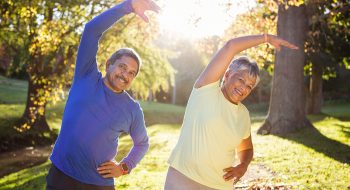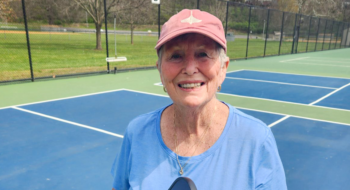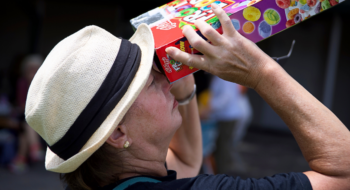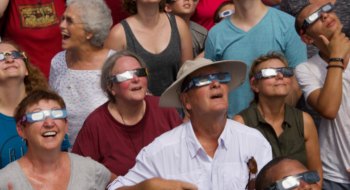Mobility is freedom – being able to get up and do what you want to do, when you want to do it. If you lose mobility as you age, you also lose quality of life.
Dr. Mark Rowley, an orthopedic surgeon at Tidelands Health, shares some tips to help you keep active as you age.
What causes a lack of mobility as we age?
There are multiple factors. Arthritis would be one of the most common, but frequently it starts as stiffness and weakness in your legs resulting from immobility or less mobility than when we were younger.
What problems can arise because of a lack of mobility?
The initial symptoms are stiffness in the joints – either your hip or your knee or foot and ankle – and pain when we do certain activities in our daily lives, whether it’s housework, climbing stairs, working in the garden or even recreational activities we enjoy. That is followed by weakness and eventually imbalance, which creates a high risk for falling and sustaining an injury.
When should someone see a doctor if experiencing these symptoms?
These issues can be discussed as part of your annual check-up with your primary care physician. We all have different levels of activity as we age than when we were younger. But if you notice that you’re not as active doing things that you did in the past year or so, that can be a warning sign. Often, family members, friends or neighbors notice that you’re not going out as much and point it out.
How can we fight against a loss of mobility as we age?
It is a normal part of aging to experience some of these symptoms as you approach your 50s and 60s. Always discuss any changes with your primary care doctor. But there are things you can do to stem the effects. Maintain or increase your activity through a light walking program. Or work out with a trainer who can teach you how to work on balance exercises and strengthening. We all have a tendency to develop atrophy in our muscles, and, if not counteracted, it will progress every year.
What are the best ways to stay active?
Yoga is excellent. It also provides other emotional health benefits. You could try a light weight walking program. If medical issues prevent you from walking a long distance, try a bicycle, treadmill or elliptical machine.
If someone hasn’t been active because of sickness or injury, can that person regain mobility?
Yes, but it’s going to be a longer, probably more difficult process. That person should talk with his or her physician to identify activities that are safe to do and then develop a plan. Start with achievable goals.
Featured Article
Only a little exercise can help increase mobility in older adults, study finds
Read ArticleFor a person who has been sick or injured, it’s going to be baby steps leading to bigger steps. A person in his or her 50s, 60s or 70s who is stiff or walking with a cane can benefit from range-of-motion exercises – the stretching and strengthening. Those are very important and many times will delay the need for any formal medical treatment.
What are some of the other benefits of keeping your mobility as you age?
In addition to preventing or reducing the risk of falling, it’s going to give us a higher quality of life. We will be able to continue to do the things we enjoy doing – traveling, going for a walk on the beach, spending time with our family. Those are all very important. But you also have the health benefits.
Keeping your mobility can help reduce the chances for obesity, high blood pressure, diabetes, mental health issues, depression. All of these are linked to mobility. I tell my patients that we are not just looking at your knee X-ray today and deciding how best to treat your knee. This knee and your ability to stay mobile affects all these medical conditions. And the best treatment many times is not a medication but an activity and mobility program.
Enjoying this story? It’s free to republish. Learn more.

Dr. Mark Rowley
Orthopedic Surgeon, Tidelands Health Orthopedics
Call to Schedule
Bio
Dr. Mark Rowley is a board-certified, fellowship-trained orthopedic surgeon who practices at Tidelands Health Orthopedics at The Market Common.
Learn MoreMedical Education
Education
- Medical College of Virginia
Residency
- Wake Forest University
Fellowship
- John Hopkins School of Medicine, Joint Replacement
Awards
Board Certifications
- American Board of Orthopaedic Surgeons
- American Board of Independent Medical Examiners
Meet the Expert
Dr. Mark Rowley
Call to Schedule
Dr. Mark Rowley is a board-certified, fellowship-trained orthopedic surgeon who practices at Tidelands Health Orthopedics at The Market Common.






